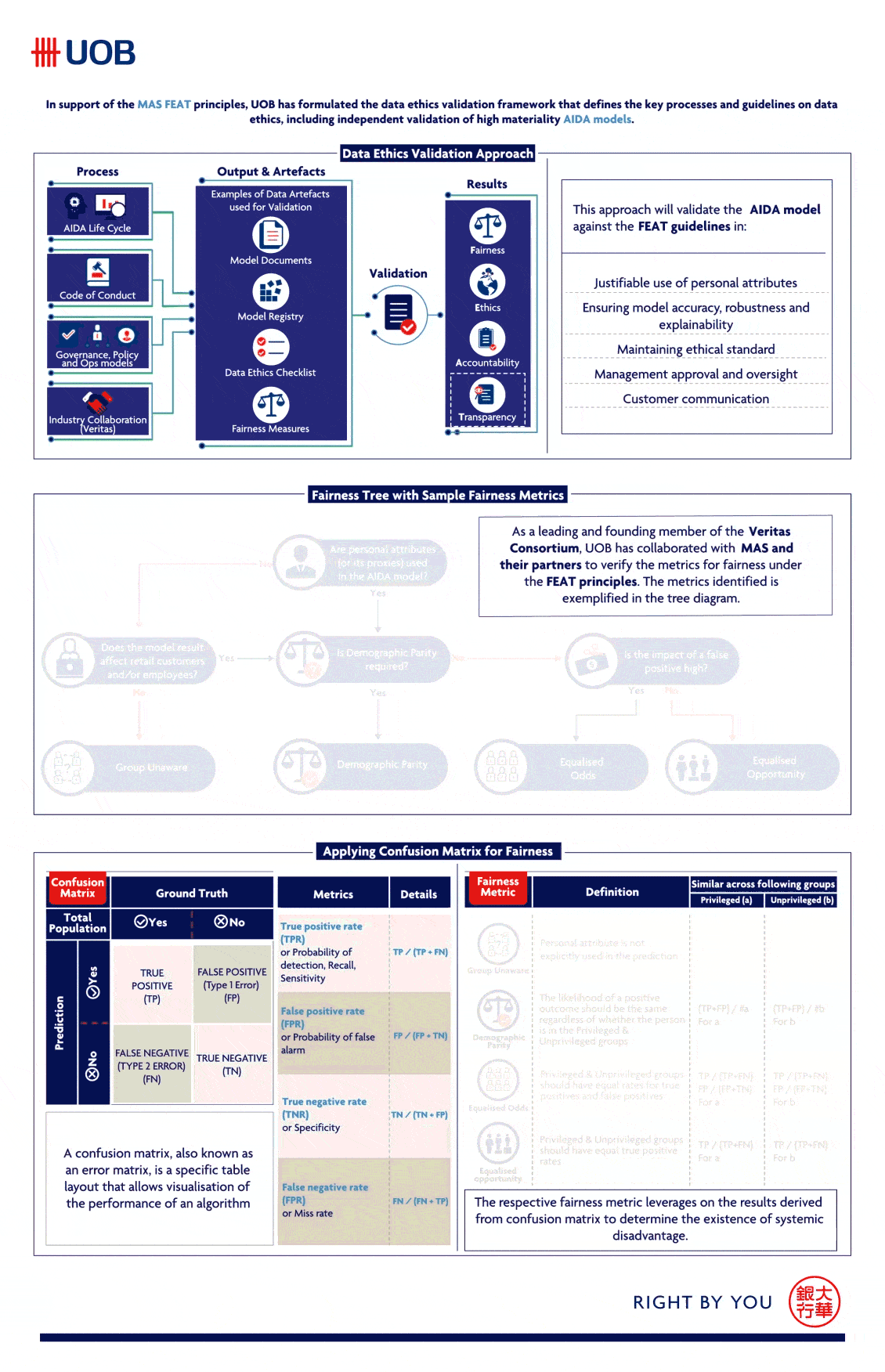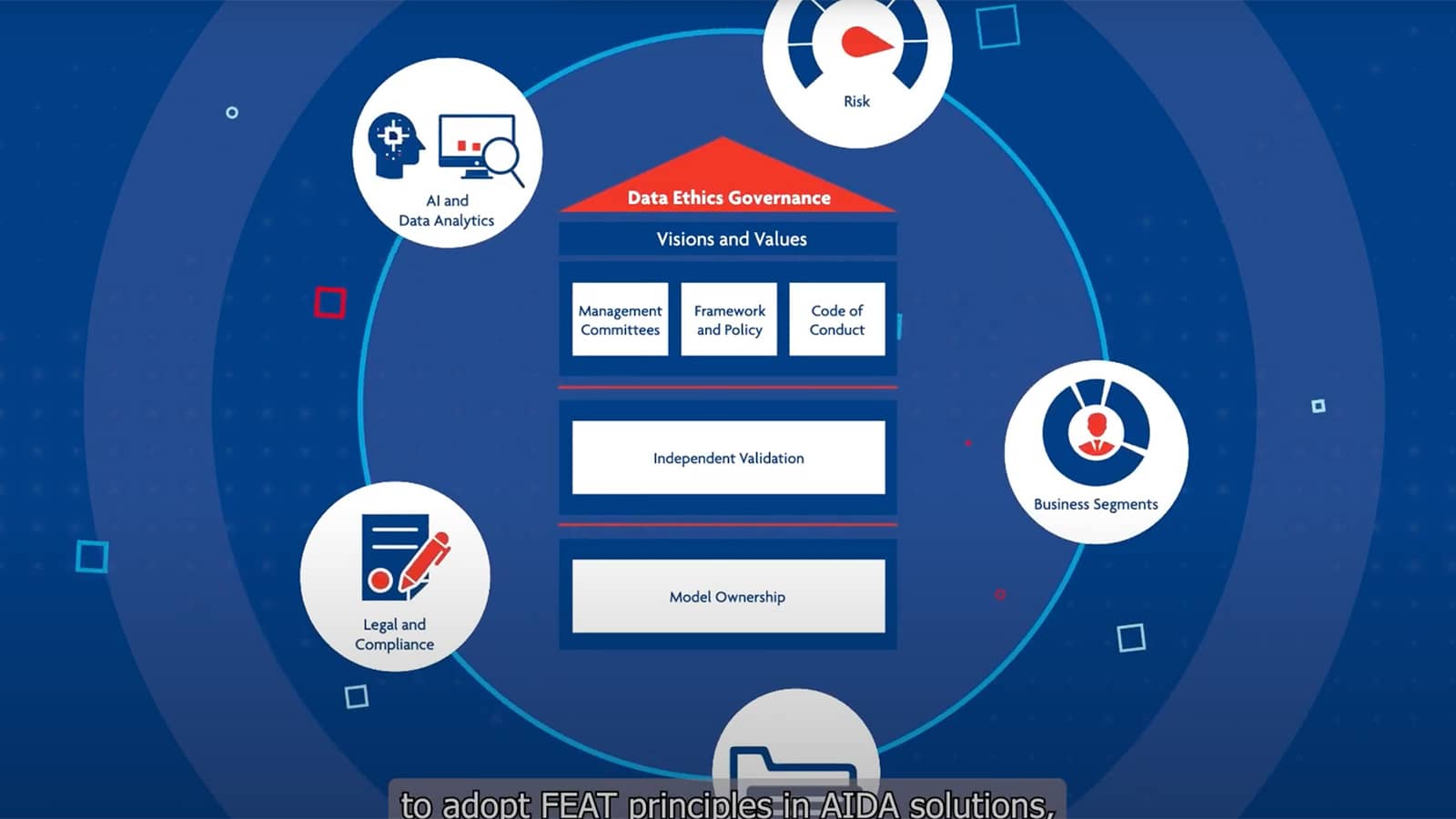Data forms the rails on which the digital economy runs. As more customers become more digital-focused in
more areas of their lives, the proliferation of data being generated and stored will only increase. Being
the trusted custodians of customer data, financial services firms will need to understand the
responsibilities associated with data ownership and the ethical use of these data.
As UOB is still at the early stages of our data journey, we have the opportunity to start the journey on
the right footing by championing a common set of principles on how financial industry can use data
responsibly. These principles should be the standard that guides the financial service firms as they
balance data-driven customer innovation with ethics.
In November 2018, MAS released a set of principles to promote Fairness, Ethics, Accountability and
Transparency (FEAT) in the use of Artificial Intelligence and Data Analytics (AIDA) in Singapore’s
financial sector. This set of principles is not intended to be prescriptive and it provides high-level
guidelines for financial services firms to adopt as a foundational framework.
As a values-based organisation, we at UOB are committed to being honourable and safeguarding the
interests of our customers is our priority. To this end, we have set up a multi-disciplinary data ethics
task force to develop a governing framework of policies and processes that ensures its AIDA-driven
decisions comply with the FEAT principles. In addition, through the MAS Veritas Consortium, of which UOB
is a founding member, we have collaborated with MAS and their partners to develop an assessment
methodology to evaluate Fairness, Ethics, Accountability and Transparency in AIDA models.
At UOB, we also have robust standards, processes and policies in place to ensure the ethical governance
and use of data. We will continue to strengthen the foundation of trust we have with our customers by
building upon the best practices in Responsible AI and Data Ethics.








